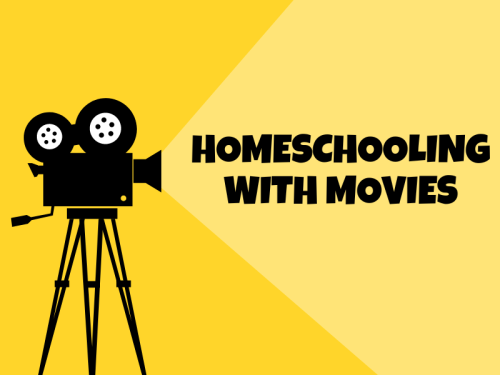What should I look for?
When beginning the search for a support group, there are a few key points you need to think about. Here we will discuss some of the more important topics of concern to look at.
Size of the Support Group
Size of a group is not as important as the level of involvement in the group. Are there 200 families in the group you are looking at? Only 50 families? How many of these people are actively involved in the group. That is the number that is important. There are groups out there that have a large number of families, but there are only handfuls that are still actively participating in the group. The more that are involved, the better the benefits can be. You are more likely to find other children around your child’s age, with at least some of the same interests than in groups with little involvement. Does the group have co-ops inside of the group? Do you want to be involved in co-ops? Co-ops are a great way to meet new families with similar learning tracks to yours-they also help spread the wealth of knowledge that we all harbor.
Religious Affinity
Many homeschool groups out there are strictly for members of one specific religion. These groups also often ask that members sign a statement of faith. If you are okay with this, and find a group that is of your faith that is wonderful. It goes along with having families with beliefs similar to yours. If you do not want to be a member of a faith based homeschool group, your search should be for a secular or all-inclusive group. These groups are generally open to people of all (or no) faiths, and ask only that there is no bashing of other faiths. This option is great for multi-faith families or those of alternate (agnostic, atheist, pagan) beliefs. These groups can be harder to locate in some areas, but they are there.
Age of Members
Are your children just beginning kindergarten or first grade? Did you just move from a different area or out of state, but you have older students? Do you have a mixture of older and younger children? A good homeschool support group has plenty of children in the same age range as your children. Now this does not mean that the group has to have twenty five or six year olds or the same number of thirteen or fourteen year olds. Children are amazingly good at playing with people around their same age, not only exactly their same age. Isn’t one of the reasons you are homeschooling to get proper socialization with multiple ages? Many groups have groups within the group. For example one group has a TnT (Tweens and Teens) group that has their own activities as well as participating in the main group activities. This same group has an ABC Club that started out as preschool and kindergarten aged children learning their ABC’s and early reading skills together. This group is still together with some preschool and kindergarten aged kids, but the majority are now if first or second grade. They have moved on from the alphabet to geography, space exploration, and science learners.
Do you get along with the other parents?
We are always concerned about our children getting along with the kids in the group. Equally important, but often overlooked is how you get along with the other parents. If you do not get along with them (at least some of them) you are less likely to be involved and that is not helping anyone. Most groups have park days and require that you go to one of these, or another event for a “try before you buy” day. This does not mean that you have to pay for all support groups, but most do ask for a donation toward group activity supplies, field trip deposits, and other group needs. Some larger groups this is as small as $5.00 per family, others are up to $25.00 per family. It often depends on the area, the size of the group, and what the group does with the money.
What if there isn’t a group in my area?
Starting your own homeschooling support group is not as difficult as it may seem. Go to your local library and ask to put a notice up stating that you want to start a new group, find homeschooling message boards, and check out your state resources for local homeschool support groups here on the directory. Other places to find homeschoolers in your area are community centers, parks, and enrichment programs.
As you can see there are a few main factors that need to be addressed when looking for a support group. These are the key points that should be on top of everyone’s list.
If you have a support group you would like to submit to the directory, please Submit support group here.
Do you have other questions you would like answered about support groups? Contact us and we will add them to this article (as well as answering you back individually).
Home Educators Resource Directory (HERD) is owned, managed, and maintained by parents passionate about giving their children the best education. The Directory’s mission is to provide resources, support, and information helpful to the diverse community of educators around the globe. Along with offering a rich store of varied resources, the Directory maintains a catalog of local and global support groups and calendars highlighting local events.
The HERD monthly newsletter keeps educators apprised of current homeschool events and supplies informational articles for both the new and experienced. We invite you to stay informed with your own newsletter subscription, explore our many resources by visiting the Directory http://www.homeeddirectory.com/ and check out all the information to be found on our blog.
Permission to reproduce this article granted only with the entire article, bio and all links included.
When beginning the search for a support group, there are a few key points you need to think about. Here we will discuss some of the more important topics of concern to look at.
Size of the Support Group
Size of a group is not as important as the level of involvement in the group. Are there 200 families in the group you are looking at? Only 50 families? How many of these people are actively involved in the group. That is the number that is important. There are groups out there that have a large number of families, but there are only handfuls that are still actively participating in the group. The more that are involved, the better the benefits can be. You are more likely to find other children around your child’s age, with at least some of the same interests than in groups with little involvement. Does the group have co-ops inside of the group? Do you want to be involved in co-ops? Co-ops are a great way to meet new families with similar learning tracks to yours-they also help spread the wealth of knowledge that we all harbor.
Religious Affinity
Many homeschool groups out there are strictly for members of one specific religion. These groups also often ask that members sign a statement of faith. If you are okay with this, and find a group that is of your faith that is wonderful. It goes along with having families with beliefs similar to yours. If you do not want to be a member of a faith based homeschool group, your search should be for a secular or all-inclusive group. These groups are generally open to people of all (or no) faiths, and ask only that there is no bashing of other faiths. This option is great for multi-faith families or those of alternate (agnostic, atheist, pagan) beliefs. These groups can be harder to locate in some areas, but they are there.
Age of Members
Are your children just beginning kindergarten or first grade? Did you just move from a different area or out of state, but you have older students? Do you have a mixture of older and younger children? A good homeschool support group has plenty of children in the same age range as your children. Now this does not mean that the group has to have twenty five or six year olds or the same number of thirteen or fourteen year olds. Children are amazingly good at playing with people around their same age, not only exactly their same age. Isn’t one of the reasons you are homeschooling to get proper socialization with multiple ages? Many groups have groups within the group. For example one group has a TnT (Tweens and Teens) group that has their own activities as well as participating in the main group activities. This same group has an ABC Club that started out as preschool and kindergarten aged children learning their ABC’s and early reading skills together. This group is still together with some preschool and kindergarten aged kids, but the majority are now if first or second grade. They have moved on from the alphabet to geography, space exploration, and science learners.
Do you get along with the other parents?
We are always concerned about our children getting along with the kids in the group. Equally important, but often overlooked is how you get along with the other parents. If you do not get along with them (at least some of them) you are less likely to be involved and that is not helping anyone. Most groups have park days and require that you go to one of these, or another event for a “try before you buy” day. This does not mean that you have to pay for all support groups, but most do ask for a donation toward group activity supplies, field trip deposits, and other group needs. Some larger groups this is as small as $5.00 per family, others are up to $25.00 per family. It often depends on the area, the size of the group, and what the group does with the money.
What if there isn’t a group in my area?
Starting your own homeschooling support group is not as difficult as it may seem. Go to your local library and ask to put a notice up stating that you want to start a new group, find homeschooling message boards, and check out your state resources for local homeschool support groups here on the directory. Other places to find homeschoolers in your area are community centers, parks, and enrichment programs.
As you can see there are a few main factors that need to be addressed when looking for a support group. These are the key points that should be on top of everyone’s list.
If you have a support group you would like to submit to the directory, please Submit support group here.
Do you have other questions you would like answered about support groups? Contact us and we will add them to this article (as well as answering you back individually).
Home Educators Resource Directory (HERD) is owned, managed, and maintained by parents passionate about giving their children the best education. The Directory’s mission is to provide resources, support, and information helpful to the diverse community of educators around the globe. Along with offering a rich store of varied resources, the Directory maintains a catalog of local and global support groups and calendars highlighting local events.
The HERD monthly newsletter keeps educators apprised of current homeschool events and supplies informational articles for both the new and experienced. We invite you to stay informed with your own newsletter subscription, explore our many resources by visiting the Directory http://www.homeeddirectory.com/ and check out all the information to be found on our blog.
Permission to reproduce this article granted only with the entire article, bio and all links included.





